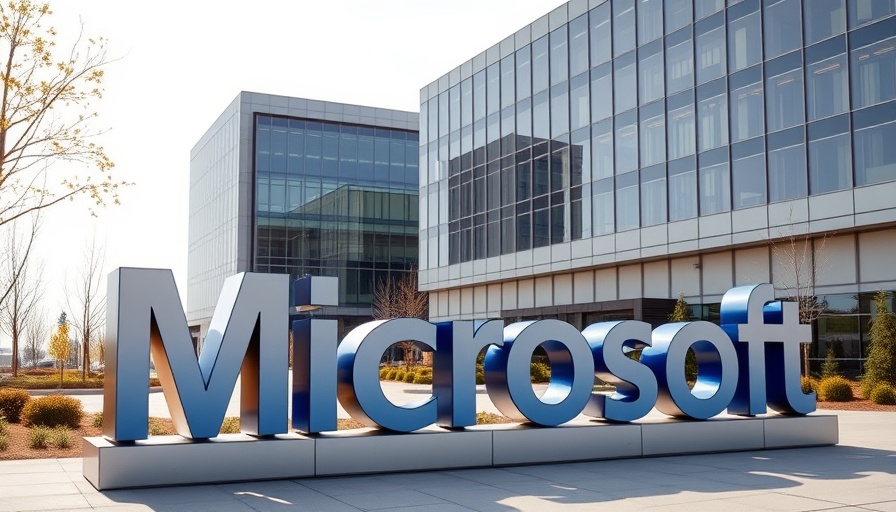
Microsoft Protests: A Look into Employee Activism
This week, Microsoft headquarters in Redmond, Washington, was a battleground for employee protests, resulting in arrests. These demonstrations were not just random acts of dissent but were rooted in a deep-seated concern regarding the tech giant’s dealings with the Israeli military during the ongoing war in Gaza. The protests were organized by the No Azure for Apartheid group, consisting of Microsoft employees who argue that the technology provided to Israel is being used in the ongoing conflict, which has seen immense loss of life and suffering.
Understanding the Implications of the Technology
The allegations are serious: Microsoft’s Azure cloud computing platform is purportedly being utilized by the Israeli Defense Forces (IDF) to execute military operations against Palestinians. Reports allege that technology from Microsoft is being employed to store data for mass surveillance—data that includes phone call recordings of Palestinians in Gaza and the West Bank. This has raised ethical questions, particularly among employees who feel complicit in aiding a military campaign that results in civilian casualties. Microsoft’s response was to launch an urgent review into these allegations through the law firm Covington & Burling.
Bringing the Issue Closer to Home: Community Reactions in Bakersfield
For residents in Bakersfield, California, keeping abreast of these developments is crucial. The ties between big tech, military contracts, and humanitarian crises can feel remote when living in a quiet community like Bakersfield. Yet, as consumers, the choices made by corporations like Microsoft affect our global community and our moral compass. Many Bakersfield residents utilize Microsoft’s services unknowingly tied to such controversial military actions, raising questions about corporate accountability and individual responsibility to demand change.
The Impact of Employee Activism
In a notable shift, more employees are stepping forward to protest corporate practices that clash with their ethical beliefs. The recent protests are part of a broader trend of employee activism across various industries, from fast food chains to giant tech companies. Workers are increasingly willing to risk their employment for their beliefs. This courageous act has sparked conversations about the lines companies must adhere to when it comes to human rights versus profit-making endeavors. Solidarity among employees can drive significant change, pressing companies to reassess their partnerships with entities that may be operating under morally contentious conditions.
Counterarguments: The Company’s Perspective
While the protests underscore serious ethical concerns, it’s important to consider Microsoft’s stance. In defense, the company insists its Azure platform operates under strict guidelines that prohibit usage for military targeting and harm to civilians. Microsoft argues that they have undergone their internal review processes to ensure compliance with their ethical standards. However, criticism remains due to the lack of transparency regarding these findings, as details from previous claims of compliance were not disclosed to the public.
Future Trends: The Evolving Role of Technology
The trends seen in this situation highlight a crucial point: as technology evolves, so must our ethical considerations. With AI and surveillance technology advancing rapidly, broader societal discussions about the technology’s potential misuse grow increasingly urgent. How companies approach these technologies can either advance society or contribute to unprecedented harm. Observers will be watching closely how Microsoft responds to current allegations and what long-term changes will emerge within corporate practices and employee advocacy movements.
Why Local Communities Should Care
The issues arising from Microsoft’s partnerships with the military should prompt local communities to engage in discussions about corporate accountability and ethical consumption. If employees feel deeply enough to protest their employer, it demonstrates a level of commitment to human rights that resonates with many across the country, including here in Bakersfield. The decisions made by corporations can ripple through communities, influencing ethical standards and consumer behavior. Community engagement in these discussions fosters a collective effort to seek transparency and accountability from corporations.
To drive change, consider engaging in community conversations about corporate responsibility. Participation can take many forms, from supporting local initiatives that advocate for social justice to holding corporations accountable for their actions abroad. Together, we can influence the companies that have immense power on global issues.
 Add Row
Add Row  Add
Add 



Write A Comment